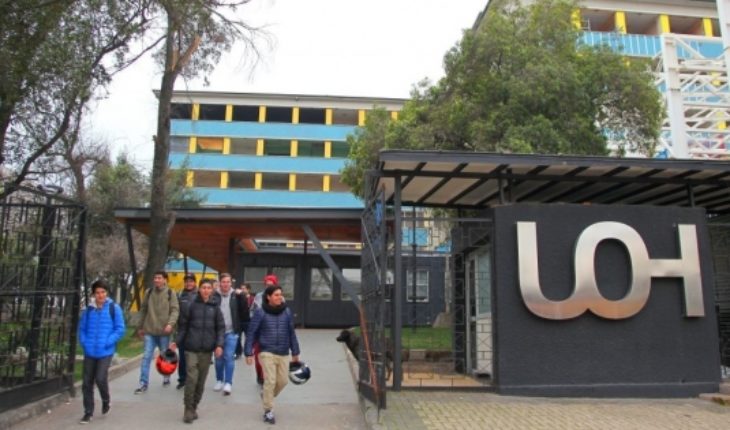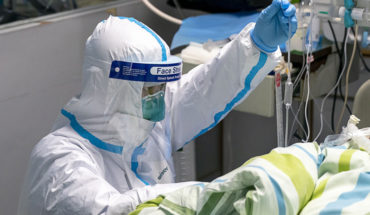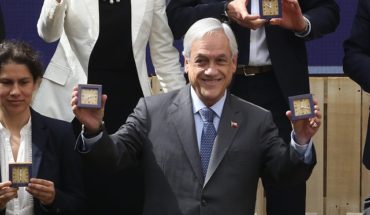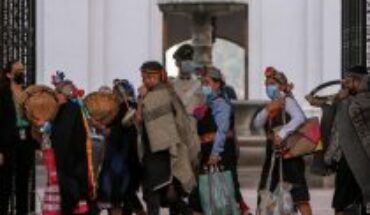During the third year of the existence of the first state university in the sixth region, the first choice of rector at the University of O’Higgins. In this process, as in the rest of the state universities, only the academic state participated, who convening a total of 35 votes out of 41 possible, expressed themselves in the ballot box before the only candidate, the current rector Rafael Correa. The result in the end of the process, although expected in terms of the “ratification” of Correa’s management at the head of the UOH, was entirely surprising the minimum margin with which Correa imposes itself over the sum of the null and white votes : with an 85.3% stake, 19 (54.3%) academics opted for Correa, while 16 (45.7%) of them voted null or white. Clearly an outcome that together with being narrow, puts a cloak of doubts about the strength and political stability of the project headed by this Rectory. If there was even no shortage of those who boldly remembered on July 22of the vote count that historic headline of the newspaper Fortín Mapocho that he titled there in October ’88 concerning the plebiscite: “He ran alone and came second!”, that go if it fit a eventual defeat of Correa which was not given by just 2 votes!
However, beyond the comidillo, little and nothing is being reflected on this scenario today. In the absence of a substantive political debate within the university community, a new blur and account seems more likely after the outcome by the Rector. Undoubtedly a remement like this should give way to more than some rearmament of political-administrative parts within the institution, however we believe that this post-elect silence in nothing contributes to the necessary process of reflection and critical analysis on the part of community regarding the current context of our house; tremendous mistake if we think that UOH is a construction project.
Let’s adjust the optics a little bit, what about the situation inside the University of Aysén, an institution also State, counterpart and conethane of the UOH? It was not until long ago that the accounts gave an account of a much stronger situation for O’Higgins’s campus, either in terms of tuition and student recruitment, as well as by the airof stability and seemingly progress of the project led by Rector Correa; however, the current landscape calls into question what was affirmed during previous months, since in its counterpart in the far south of the country, an election process has been developed in the rectory that allow to draw much more cheerful accounts by Aysén : without significant differences in participation, a project led by a Rector, with a politically strengthened community thanks to the healthy debate of ideas provided by both academics, made unprecedented and pleasantly surprising, which gives the current scenario in Aysén the legitimacy of a project that expires at the ballot box in the framework of the dialogue of the different voices that coexist in a university community; this in O’Higgins is strange, the same age as the University of Aysén, has a process of choosing rector where there is only one candidate, being strongly sanctioned politically by the academic siton marking a second term start notoriously conditioned by circumstances.
Against this backdrop, what causes are atthe forefront of the likely explanations that give account of this reality that The UOH is going through? What conclusions do we draw on this outcome as a university community?
First of all, how damaging can the fact that there are unique nominations be in a project that is under construction like that of the UOH? Can you tell this situation that there are no further critical reflections on the educational project being forged? It is difficult to believe and it is virtually impossible that in a space where knowledge is built, there is no diversity of voices that can discuss the course of a university that is settling in a region, which is forging its lines of research, which is forging its lines of research, which is accommodating its teaching projects, and has not otherwise been without serious problems, such as the non-renewal of the contract of two important academics of the health school, after one of them made a complaint of job harassment, and the other testify on your behalf. With the example of the single re-election candidacy, little and nothing reflects the pluralism of voices needed to think and build a state university.
Secondly, and what we consider to be the core of the result, is the demonstration of the deep discontent that exists for the state of academics and academics to the current management. Of course, there is still time to delve into the concreteness of this malaise, but what we do have certainty about is that this scenario jeopardizes the legitimacy of the current management team and Rafael Correa.
As for the threats that emerge in this post-election scenario, the main one relates to the absence of actresses and political actors who are part of the university community, and particularly the academic and academic stall, which in a way they are thinking about how the UOH does not replicate the current university-business logics over state higher education institutions; alongside this, there are no spaces where there is a question of how that paradigm is installed in a underground way, replicating, for example, the overwhelming number of ‘taxi teachers’ in our schools, i.e. teachers hired at fees for one or two semesters, which in addition to circumventing the precariousness of labor flexibility, are unable to link to schools deeply, through outreach projects, teaching research, to name just a few backgrounds.
With regard to potentialities, they should be considered as aspects to be highlighted in order to overlap as a community in the face of context. To think about running the encirclement of the possible through actions that do not lose the focus of what strengthens truly public university projects: Democratic universities with active participation of all their states, generate collectively and promote from spaces such as the Academic Council of the UOH, for example, a political agenda that advocates for the demarketing of university, addressing and living up to the conditions that determine the existence of professors taxis or colloquially so-called “dictatorship of paper” with which it must link the academy many times at the expense of teaching and extension as essential functions of a university.
Finally, in the latter, students must take a more active position. The prospects offered by the Student Congress of the end of August to constitute the Statute of the future Federation of Students, allow us to think and project a student system with higher degrees of empowerment and advocacy in the future of the development project, as well as playing a relevant political role within the UOH community. We look forward to many expectations that academics, teachers and non-academic civil servants can also continue the development and strengthening of their organization so that we can place those expectations on the achievement of a dialogue communidating, transversal and with a collective perspective within the community. A project in the early stages of its development such as that of the University of O’Higgins requires an active and in constant community with the development of the educational project: that is our disposition, that is why we will play and in that line we invite start a fraternal debate as a community.
The content poured into this opinion column is the sole responsibility of its author, and does not necessarily reflect the editorial line or position of El Mostrador.





